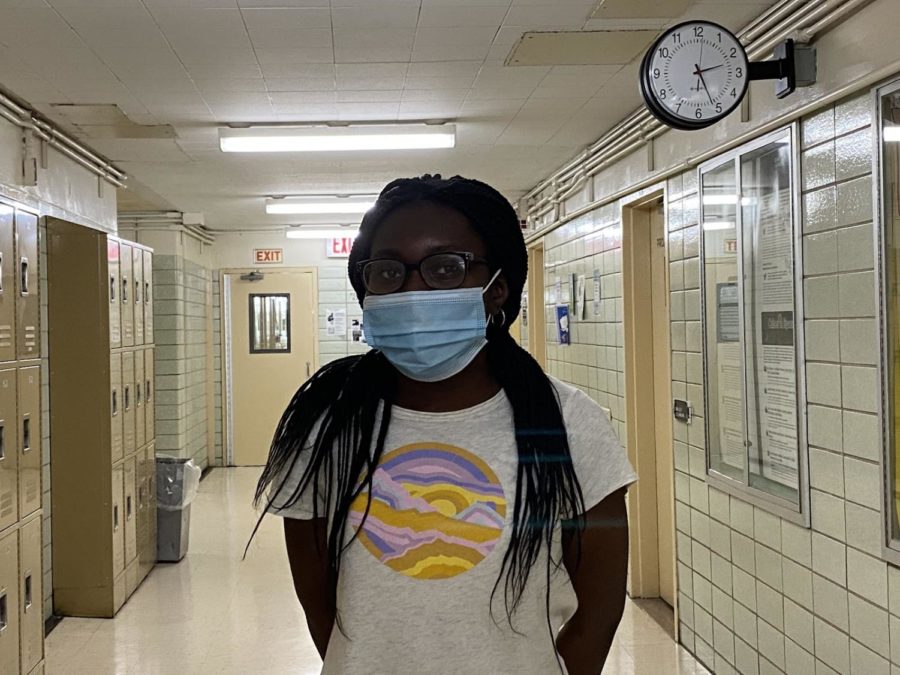Hope Against the Coronavirus Variants, Delta and Omicron
Recent developments in the fight against COVID-19, including new variants.
“Vaccines help to greatly reduce the spread of the Delta variant of COVID-19 because they help to decrease the viral load that can be found in individuals,” said Dorothea Dwomoh ’22.
Do not be misled by the fear-mongering surrounding information about the Delta variant, about which much is known, or the brand new Omicron variant, about which little is known as of this article’s publication. As long as you are fully vaccinated against COVID-19, wear your mask at all times indoors (ideally a N95 mask or KN95 mask), wash your hands regularly, and practice social distancing, you will minimize your risk of COVID-19 infection, regardless of the variant.
When the news of the Delta variant, followed by the Omicron variant, was first released, people around the world wondered if we would suffer under an everlasting Coronavirus pandemic. Would we be stuck in our current situation forever?
Bronx Science students do not seem to think so. The 2019-2020 edition of the Bronx Science Journal of Biology (JOB) had an entire section dedicated to an analysis of COVID-19. Of the articles within the section, one particular work caught my eye. Written by Dorothea Dwomoh ’22, it is about potential drug treatments for COVID-19. At the time of her article’s publication, the Delta variant had not yet surfaced, so I reached out to Dwomoh again, hoping that she would be able to provide me with some useful up-to-date information.
The main reason why the Delta variant (and potentially the Omicron variant) is such a large concern is because of how easily it spreads. People who are vaccinated can still infect other people. However, this does not mean that there is no point in getting vaccinated.
“Vaccines greatly help to reduce the spread of COVID-19, regardless of the variant, because they help to decrease the viral load that can be found in individuals. Therefore, encouraging as many people around the world as possible to get vaccinated will be beneficial to reduce the spread of COVID-19,” said Dorothea Dwomoh ’22. “The vaccines are highly effective, but breakthrough infections do occur, especially after six months, given that the vaccines do become less effective over time, so it is important that we continue to wear masks indoors, maintain social distance, and encourage those who can get booster shots to do so.”
Although the Delta variant does spread more quickly than the original COVID-19 strain and can infect some vaccinated individuals, the current COVID-19 vaccines do still significantly impair the Delta variant’s ability to spread and harm your body. The Omicron variant has just been detected, so it will be two to three weeks before we have any scientific data on it, allowing us to determine how quickly it will spread, how well the current vaccines work against it, and to what degree those infected become sick from it.
Regardless, wearing a mask while indoors (preferably N95 or KN95) and improving ventilation while indoors (opening windows, using air filters, etc.) will reduce your risk of infection further.
We are also in a much better position now against COVID-19 than we were back in March 2020. Now, vaccines are still the best line of defense, but we have other secondary defenses as well: drug treatments. Dwomoh’s JOB article featured many different drugs, but two in particular stood out. The first one is Remdesivir, which has since been tested on a larger population. “My article was written before the vaccines came out, so at the time, Remdesivir was helpful in the most severe cases of COVID-19. However, Remdesivir has been tried on a larger population through a randomized clinical trial across 405 hospitals in 40 countries, and the drug is not as effective as previously thought,” said Dwomoh ’22. Regardless of its effectiveness, when paired with Baricitnib, another antiviral drug, Remdesivir produces anti-inflammatory effects, which is crucial to the treatment of COVID-19.
There has been another recent positive development. Pfizer has recently announced a new antiviral pill, meant to treat people with COVID-19 who are at higher risk of becoming severely ill from COVID-19. A few days ago, they applied to the Food and Drug Administration (FDA) for authorization of the pill, which will become available for use within weeks, if approval is granted by the DFA. It will be sold under the brand name Paxlovid, and clinical trials have revealed that it sharply reduces the risk of hospitalization when given to high risk individuals shortly after the onset of symptoms.
If the Omicron variant proves to be able to evade vaccines to a higher degree than the Delta variant, Pfizer and Moderna will be able to quickly revise their mRNA vaccines to target it specifically to this new variant, within around three months’ time.
We are also in a much better position now against COVID-19 than we were back in March 2020.
Melanie Lin is an Editor-in-Chief for 'The Science Survey.' She enjoys portraying mundane things in fascinating ways through journalistic writing and describing...











